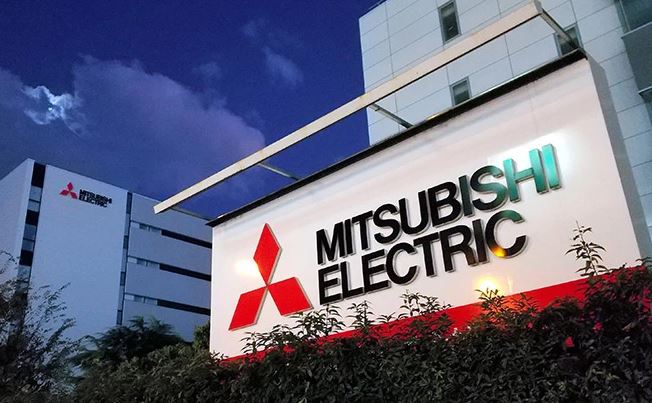Toshiba Corp, Mitsubishi Electric Corp, Daikin Industries Ltd, and Subaru Corp. are reluctant to invest in the military side of their businesses in support of Japan’s five-year 40 trillion yen military expansion.
Japan is trying to deter China from using force in the East China Sea and invading Taiwan.
A vital part of Japan's strategy hinges on persuading commercial firms, such as Toshiba Corp, Mitsubishi Electric Corp., and Daikin Industries Ltd, to ramp up defense manufacturing.
Daikin, which manufactures air conditioners, also produces ammunition; Toshiba, which makes electronic goods such as printers, also has military-grade batteries; and Mitsubishi Electric makes radars and missiles alongside fridges and vacuum cleaners.
The companies have quietly armed their self-defense forces for decades.
However, due to public sentiment against militarism in Japan, that strategy is difficult to execute.
In private meetings with the defense ministry over the last year, some firms have raised concerns such as low-profit margins, the financial risk of building manufacturing plants that could be left idle after Japan completes its military expansion and potential damage to their public image from arms sales.
Military contracts for Mitsubishi Heavy Industries, which is developing Japan's next jet fighter and new longer-range missiles, accounted for only a tenth of its $29 billion in revenue last year.
The government is preparing legislation that includes raising profit margins on military gear from a few percent to as much as 15 percent and the provision of state-owned factories that companies can use to expand production risk-free. Some are concerned that might not be enough.
It has increasingly been difficult for Japanese executives to justify defense sales out of patriotic duty to shareholders focused on more profitable civilian ventures.
Defense authorities have been meeting with these companies and other critical suppliers, such as the manufacturer of cars and helicopters, Subaru Corp. since early last year to persuade them to increase the size of their less visible military units.



 U.S.-India Trade Framework Signals Major Shift in Tariffs, Energy, and Supply Chains
U.S.-India Trade Framework Signals Major Shift in Tariffs, Energy, and Supply Chains  Missouri Judge Dismisses Lawsuit Challenging Starbucks’ Diversity and Inclusion Policies
Missouri Judge Dismisses Lawsuit Challenging Starbucks’ Diversity and Inclusion Policies  Japan’s Prime Minister Sanae Takaichi Secures Historic Election Win, Shaking Markets and Regional Politics
Japan’s Prime Minister Sanae Takaichi Secures Historic Election Win, Shaking Markets and Regional Politics  Trump Backs Nexstar–Tegna Merger Amid Shifting U.S. Media Landscape
Trump Backs Nexstar–Tegna Merger Amid Shifting U.S. Media Landscape  South Africa Eyes ECB Repo Lines as Inflation Eases and Rate Cuts Loom
South Africa Eyes ECB Repo Lines as Inflation Eases and Rate Cuts Loom  Nvidia, ByteDance, and the U.S.-China AI Chip Standoff Over H200 Exports
Nvidia, ByteDance, and the U.S.-China AI Chip Standoff Over H200 Exports  China Warns US Arms Sales to Taiwan Could Disrupt Trump’s Planned Visit
China Warns US Arms Sales to Taiwan Could Disrupt Trump’s Planned Visit  Bangladesh Election 2026: A Turning Point After Years of Political Suppression
Bangladesh Election 2026: A Turning Point After Years of Political Suppression  FDA Targets Hims & Hers Over $49 Weight-Loss Pill, Raising Legal and Safety Concerns
FDA Targets Hims & Hers Over $49 Weight-Loss Pill, Raising Legal and Safety Concerns  Trump Signs Executive Order Threatening 25% Tariffs on Countries Trading With Iran
Trump Signs Executive Order Threatening 25% Tariffs on Countries Trading With Iran  Trump Administration Appeals Court Order to Release Hudson Tunnel Project Funding
Trump Administration Appeals Court Order to Release Hudson Tunnel Project Funding  India–U.S. Interim Trade Pact Cuts Auto Tariffs but Leaves Tesla Out
India–U.S. Interim Trade Pact Cuts Auto Tariffs but Leaves Tesla Out  Prudential Financial Reports Higher Q4 Profit on Strong Underwriting and Investment Gains
Prudential Financial Reports Higher Q4 Profit on Strong Underwriting and Investment Gains  China Extends Gold Buying Streak as Reserves Surge Despite Volatile Prices
China Extends Gold Buying Streak as Reserves Surge Despite Volatile Prices  Kroger Set to Name Former Walmart Executive Greg Foran as Next CEO
Kroger Set to Name Former Walmart Executive Greg Foran as Next CEO  Toyota’s Surprise CEO Change Signals Strategic Shift Amid Global Auto Turmoil
Toyota’s Surprise CEO Change Signals Strategic Shift Amid Global Auto Turmoil  Rio Tinto Shares Hit Record High After Ending Glencore Merger Talks
Rio Tinto Shares Hit Record High After Ending Glencore Merger Talks 































